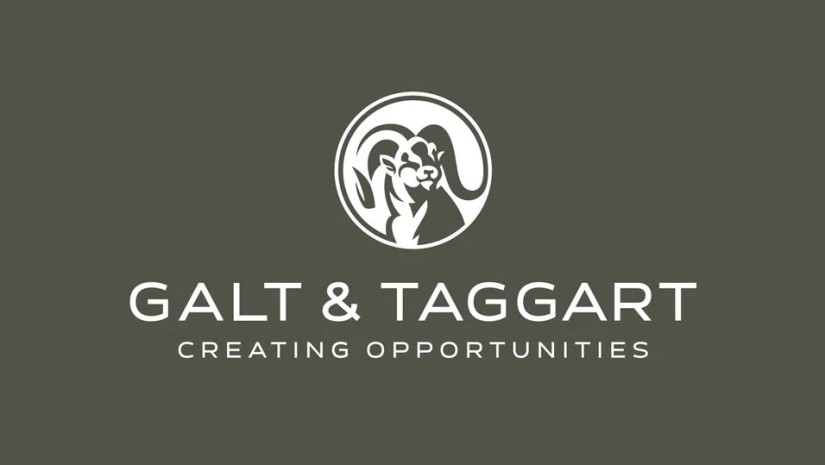Galt&Taggart published the Global Markets Weekly Update.
USA
The benchmark S&P 500 (SP500) closed out a tough five trading days on Friday with its worst weekly performance in over a year. The decline saw the index slip below the key 5,000-point level for the first time since late February. This week's retreat was driven by stronger-than-anticipated economic data, which, coupled with hawkish Fedspeak, led market participants to dial back their interest rate cut expectations as they realized that the central bank is in no rush to ease monetary policy. Furthermore, geopolitical concerns over Israel and Iran, along with a stubborn bond sell-off, also put pressure on equities. Disappointing quarterly reports from Dutch semiconductor equipment maker ASML (ASML) and the world's largest contract chipmaker, Taiwan Semiconductor Manufacturing (TSM), pulled down chip stocks, dragging down the technology sector. For the week, the S&P 500 (SP500) dipped -3.1%, the tech-heavy Nasdaq Composite (COMP: IND) lost ground by -5.5%, and the blue-chip Dow (DJI) eked out a slight gain of +0.01%.
Corporate news:
TSMC, ASML, NVDA:
Chip stocks face correction as TSMC cuts industry outlook: Semiconductor stocks worldwide are retreating from their recent surge as investors scramble to lock in profits after Taiwan Semiconductor Manufacturing Co. lowered its outlook for chip market growth. Observers attribute the fall to TSMC downgrading its outlook for the global logic semiconductor industry this year to 10% growth from more than 10%. The change fueled concern over the recovery in demand for chips used in electric vehicles, computers and smartphones. ASML has also missed analysts' earnings and revenue estimates. During the week TSM stock dropped 12%, ASML stock is down 13%, Nvidia went down by more than 14.5% and the iShares Semiconductor ETF Closed the week 10% lower.
NFLX:
Netflix Stock Tumbles on Soft Guidance, Reduced Disclosure: Netflix's stock price fell even after the company reported strong financial results for Q1 2024 - Revenue rose nearly 15% to $9.37 billion, and profit was $5.28 a share. Investors were concerned about soft guidance for the current quarter and a change in how Netflix discloses subscriber metrics. In the past, Netflix has always reported the number of subscribers it has. However, starting next year, the company will no longer report this number regularly. Investors believe that this change means that Netflix is expecting to lose subscribers in the future. Netflix management says that subscriber numbers are less important now than they used to be, because the company has multiple subscription tiers and advertising revenue. However, some investors are still concerned about the lack of transparency. Overall, the company's financial performance was strong in Q1, but the change in how subscriber metrics are reported has caused some concern among investors. NFLX went down almost 12% during the week.
UNH:
UnitedHealth beats on revenue despite impact from cyberattack: UnitedHealth Group surpassed revenue expectations in the first quarter despite ongoing repercussions from the cyberattack on its subsidiary, Change Healthcare. Adjusted earnings per share stood at $7.16, exceeding the anticipated $6.61, while revenue reached $100.08 billion, slightly above the estimated $99.26 billion. However, the cyberattack and the sale of its Brazil operations led to a net loss of $1.41 billion, compared to the previous year's net income of $5.61 billion. Adjusted earnings per share totaled $6.91, excluding the full impact of the cyberattack and the Brazil sale. The cyberattack impacted UnitedHealth's financials, with direct response efforts and business disruption costs amounting to a combined 74 cents per share. Despite the setback, UnitedHealth reported a medical cost ratio of 84.3%, slightly higher than analysts' expectations, signaling strong profitability. The company's stock rose more than 5% following the earnings report. While facing challenges, UnitedHealth remains focused on restoring Change Healthcare's services and providing support to healthcare providers affected by the cyberattack, with CEO Andrew Witty expressing gratitude for the dedicated efforts of the company's employees. UNH is up 13.5% during the week.
The Calendar:
All eyes next week will be on the latest U.S. personal income and outlays report, due Friday. The data will also contain readings on the Federal Reserve's preferred inflation gauge - the personal consumption expenditures price index. Also, Thursday will see the publication of the first estimate of U.S. GDP growth in Q1.
Monday, April 22 - Verizon (VZ), Truist (TFC), and Albertsons Companies (ACI).
Tuesday, April 23 - Visa (V), Tesla (TSLA), PepsiCo (PEP), Texas Instruments (TXN), Philip Morris International (PM), UPS (UPS), Lockheed Martin (LMT), Mattel (MAT), and General Motors (GM).
Wednesday, April 24 - Meta Platforms (META), IBM (IBM), AT&T (T), Boeing (BA), Chipotle (CMG), General Dynamics (GD), Hilton Worldwide (HLT), and Ford Motor (F).
Thursday, April 25 - Microsoft (MSFT), Alphabet (GOOG), Merck (MRK), Caterpillar (CAT), Comcast (CMCSA), Intel (INTC), and Altria Group (MO).
Friday, April 26 - TotalEnergies (TTE), Exxon Mobil (XOM), AbbVie (ABBV), Chevron (CVX), and Colgate-Palmolive (CL).
Europe
UK inflation, wage growth slow slightly less than forecast
In local currency terms, the pan-European STOXX Europe 600 Index ended 1.18% lower as tensions rose in the Middle East. Major stock indexes were mixed: Germany’s DAX fell 1.08%, Italy’s FTSE MIB gained 0.47%, and France’s CAC 40 Index was little changed. The UK’s FTSE 100 Index declined 1.25%. European government bond yields broadly climbed.
Consumer prices in the UK grew an annual 3.2% in March, down from 3.4% in February. Although the inflation rate fell to its lowest level in two and a half years, the decline was slightly less than forecast by analysts and the Bank of England (BoE) due to elevated price growth in fuel and communication goods. Services inflation—a measure of underlying price pressures that is watched closely by the BoE—remained high but slowed to 6.0% from 6.1%.
Wage growth also slowed less than expected in the three months through February. Excluding bonuses, pay increased 6% year over year, down from 6.1% in the preceding period. The unemployment rate rose sharply to 4.2% in February from 3.9%. Job vacancies continued to decline in the first quarter.
BoE’s Bailey: Inflation is receding
Higher oil prices and the somewhat sticky inflation data prompted financial markets to push out expectations for a first cut in UK interest rates from June to sometime in the fall. In contrast, BoE Governor David Bailey sounded more upbeat. “In the UK, we're disinflating at what I call full employment,” he said at the International Monetary Fund’s (IMF) annual meeting. “I see, you know, strong evidence now that that process is working its way through.”
ECB policymakers stick with June rate cut, but oil in focus
A slew of European Central Bank (ECB) policymakers at the IMF meeting reiterated that June was the likely target date for lowering borrowing costs, barring unexpected economic shocks. ECB President Christine Lagarde declined to say whether there might be more than one reduction in rates. In an interview with CNBC, she argued that policy should still depend on incoming economic data, given high levels of uncertainty. She added that the ECB would monitor oil prices “very closely” amid worries about conflict in the Middle East. In an interview with Bloomberg, Governing Council member Martins Kazaks also highlighted the uncertainty but added that the three to four rate cuts this year priced in by markets were in line with the bank’s economic outlook.
Japan
No intervention to prop up the yen, as authorities continue to tread carefully
Amid an escalation in tensions in the Middle East, Japan’s stock markets suffered sizable losses over the week. The Nikkei 225 Index was down 6.2%, and the broader TOPIX Index lost 4.8%. An additional factor weighing on the markets was some concern about waning AI-related demand.
In fixed income, the yield on the 10-year Japanese government bond closed the week at around 0.84%, broadly unchanged from the prior week. Bank of Japan Governor Kazuo Ueda echoed previous comments in stating that, if weakness in the yen exerts significant upward pressure on inflation, a rate hike may be warranted.
In the foreign exchange markets, the yen, perceived as a safe-haven currency especially in times of geopolitical turmoil, strengthened on the final trading day of the week. It nevertheless continued to hover around 34-year lows and finished the period in the mid-JPY 154 against the U.S. dollar range, from the low-JPY153 range at the end of the previous week.
While speculation continued about Japanese authorities potentially intervening in the currency markets to prop up the yen, no such move was forthcoming. However, U.S., Japanese, and South Korean leaders met to discuss current conditions in the foreign exchange markets, focusing on the recent sharp depreciation of the Japanese yen and the South Korean won.
Historic yen weakness provides tailwind for export growth
Japan’s exports rose 7.3% year on year in March, slightly slower than the 7.8% gain registered in February. The data print nevertheless marked the fourth consecutive month of growth in exports, attributable to the boost provided to Japan’s exporters by historic weakness in the yen. Signs of a pickup in Chinese demand also lent support.
In other economic data releases, the core consumer price index (CPI), a leading indicator of nationwide trends, was 2.6% higher year on year in March, slightly lower than had been expected and down from a revised 2.8% in February. While suggesting that price pressures could be easing somewhat, data showing that Japan’s inbound tourism grew solidly in March, driven by an increase in visitors from South Korea and China, is likely to support services inflation.
China
New home prices decline again
Chinese equities rose after the economy expanded more than expected in the first quarter. The Shanghai Composite Index gained 1.52%, while the blue chip CSI 300 added 1.89%. In Hong Kong, the benchmark Hang Seng Index gave up 2.89% as escalating geopolitical tensions in the Middle East hurt investor sentiment.
China’s gross domestic product expanded an above-consensus 5.3% in the first quarter from a year ago, accelerating slightly from the 5.2% growth in last year’s fourth quarter. On a quarterly basis, the economy grew 1.6%, rising from the fourth quarter’s 1.4% expansion.
However, other data provided a mixed snapshot of the economy. Industrial production rose a lower-than-expected 4.5% in March from a year earlier, down from 7% growth in the January to February period. March retail sales grew a lower-than-expected 3.1% from a year ago as catering and auto revenue slowed after the Lunar New Year Holiday. Meanwhile, fixed asset investment rose more than forecast in the first quarter from a year ago, although property investment fell 9.5% year on year. The urban unemployment rate eased slightly to 5.2%, while the youth jobless rate stayed at 15.3% in March, unchanged from February.
On the monetary policy front, the People’s Bank of China injected RMB 100 billion into the banking system via its medium-term lending facility compared with RMB 170 billion in maturing loans and left the lending rate unchanged, as expected. The operation resulted in a net withdrawal of RMB 70 billion from the banking system, marking the second cash extraction this year.
China’s new home prices fell 0.3% in March, matching February’s 0.3% drop and extending losses for the ninth consecutive month, according to the statistics bureau. Authorities have ramped up efforts to revive the troubled sector by relaxing homebuying restrictions and directing state-owned banks to step up lending to indebted property developers. However, analysts said the data showed that China's housing slump has not yet bottomed and remains a significant drag on the economy.














